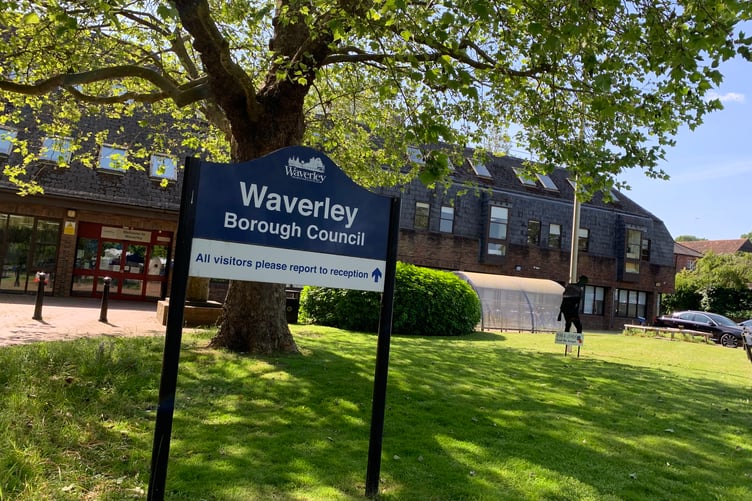Last year, news broke that enforcement notices demanding tens of thousands of pounds were being issued for what residents said were minor oversights in planning applications – with some threatened with repossessions or facing jail.
Community Infrastructure Levis (CIL) can be charged by local authorities on new developments. It is regarded as an important tool in helping to deliver the infrastructure needed to support development.
However, an “unforeseen” side effect has been independent homeowners inadvertently caught by the charges and slapped with huge life-changing fines.
Waverley Borough Council (WBC) says it is hamstrung by Government regulations which state extensions above 100 sq m are automatically liable, and that homeowner dispensation needs to be applied for.
It has also introduced a discretionary review to help those who feel they have been unfairly charged.
Now, following the Executive committee meeting on Tuesday, November 4, the council has updated how it will enforce the charges although critics say it is just worked around the fringes of the problem.
The policy states that where discretion is allowed, the council must decide whether formal action would be expedient and proportionate and whether enforcement was cost effective. It also has to consider whether ignoring the issue would undermine the integrity of CIL.
What the new policy made clear was that all liability, and any interest, remains mandatory and is unaffected. The same applies for local land charges, which will remain on the property, regardless of whether CIL enforcement takes place.
The council says it is pressing for change, while housing minister Matthew Pennycook has told the House of Commons there had been a number of “unintended consequences of the 2010 CIL regulations” while hinting change was in the works following questions from MP Jeremy Hunt.
Cllr Liz Townsend, portfolio holder for planning, told the executive meeting: “There is now clearer division between the discretionary enforcement powers that we have under the regulations and those that are mandatory – and the policy clearly highlights sections where the council is able to use discretions.”
She added: “This makes it clear the extent to the discretion that we can use and that we are using already.
“While the council may decide that it’s not expedient to take enforcement action, the liability for the CIL payment and interest on any unpaid sums is mandatory and remains unaffected as does the local land charge.
“So we can choose not to enforce but that doesn’t mean we can remove the charge of the land.
“We are under the legislation, if we can identify an error, and remember we have used very broad terms on that error, then the council is in a position to refund CIL and more importantly remove the charge on the property.”
WBC began charging CIL in March 2019 and in that time has brought in more than £39 million – much of it earning interest in the council’s bank account.
Opposition members described the update as lacking basic information including why it was being updated after just 11 months, and that it failed to outline basic differences between the two policies.
They said serious weaknesses remained – despite references to “exceptional circumstances,” because there is no clear definition of how discretion should actually be applied.
Cllr Lauren Atkins said: “You can’t claim to apply discretion if you never define it.
“Without a proper Exceptional Circumstances Policy, residents won’t know where they stand. The new policy is a step forward, but fairness still needs a framework.”





Comments
This article has no comments yet. Be the first to leave a comment.